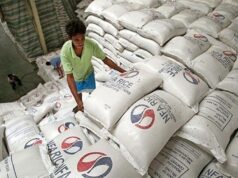
THE GOVERNMENT must lower production costs for farmers, who face increased competition from imports with the streamlining of the import process, analysts said.
“It is clear that our domestic prices are inflated by policy when you compare these with the production costs of Vietnamese or Thai farmers,” Monetary Board member V. Bruce J. Tolentino said via Viber.
He said the only “sustainable” way to raise farmer incomes is to improve their productivity and lower their cost of production.
“To strike a balance (between imports and local production,) we should make sure that we don’t import during harvest time, and we don’t import commodities when we have surplus production,” according to Danilo V. Fausto, president of the Philippine Chamber of Agriculture and Food, Inc., messaging via Viber.
Samahang Industriya ng Agrikultura (SINAG) executive director Jayson H. Cainglet also cited the need to address hurdles faced by domestic producers, including “stringent requirements” all over the supply chain.
These include streamlining the process of obtaining business permits and other certificates, and obstacles to the movement of agricultural produce due to conflicting regulations or ordinances in the national and local levels.
Mr. Cainglet also said the government must address the “arbitrary closure of farms or increasing requirements and fees for farms to continue operating,” and assist agriculture industry participants in obtaining subsidies and insurance.
Last week, the National Economic and Development Authority (NEDA) backed the need to reduce non-tariff barriers to imports, as domestic production is inadequate for cooling inflation by expanding supply.
“In the face of shortages in local production, where supply cannot immediately meet demand at affordable prices, Administrative Order No. 20 serves as a strategic policy tool responsive to the needs of our economy,” NEDA Secretary Arsenio M. Balisacan said on Thursday.
He clarified that “neither the NEDA nor the government is biased toward imports.”
The agriculture sector has been battling the impact of the El Niño dry spell. According to the DA, agricultural damage due to El Niño is now reckoned at P3.94 billion. — Beatriz Marie D. Cruz



